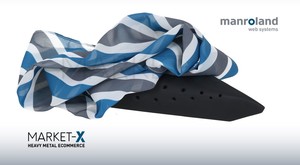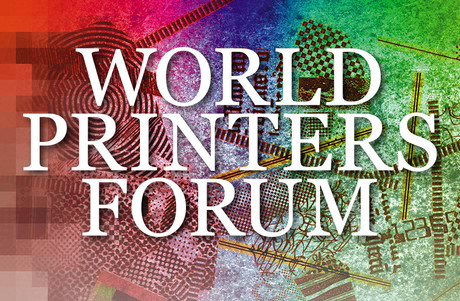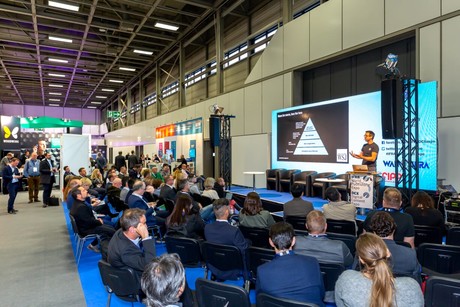The term additive manufacturing describes a process in which a component is built up, layer upon layer, on the basis of digital three dimensional design data, through depositing or connecting of materials. The familiar term, 3D printing, is ever more often used as a synonym for additive manufacturing processes. The next generation FFF process is a professional production process, which is currently in the very early stages of its development.
manroland web systems and additive manufacturing
One reason why manroland web systems has occupied itself intensively with this subject is simultaneously one of the most prominent benefits of additive manufacturing: shorter lead times. And it is almost immaterial whether it is a work piece with complex geometries or a relatively simple object. The development and production of tools and moulds is completely eliminated. Corrections to prototypes or short notice design modifications are also possible, without problems.
Time to Market and highest levels of flexibility
manroland web systems has developed an innovative business model for online trade over the past few years with the manroland web STORE and the B2B-trading platform, MARKET-X. The topics of speed and flexibility are naturally of great interest; in particular, for this successful e-commerce sector with its fast growing, ever widening spectrum of offered products. Various manufacturing processes, which provide further benefits to the customer, can be implemented, depending on how pressing the deadline is.
Sustainability and responsibility
A huge benefit of 3D printing which often receives short shrift these days, has however enormous significance: significantly less waste is produced during the production of work pieces by additive manufacturing, than would be with conventional production processes. In the future, for example, decentralised production would be conceivable in order to shorten transport routes. 3D printing provides very promising possibilities for designers regarding lightweight construction, which in turn means a reduction of materials used.
“Alongside the afore-mentioned benefits, additive manufacturing additionally brings an immense optimisation of inventories with it, because you can produce “on demand”. At the same time, we still have a definitive security of supply. These benefits mean that our customers will profit both monetarily and also through time savings and faster processes. We can also guarantee long-term reproducibility of mechanical parts without the use of specific tools or casting moulds. A lot of these processes are still not an option when it comes to mass production, however they are very suited to the production of conventional batch sizes in machinery and plant engineering,” explains Lutz Leonhardt, Vice President Global Supply Chain & Merchant Network at manroland web systems.
Benefit upon benefit
Alexander Wachter, Vice President eCommerce, Remote Service, Customer Support at manroland web systems, summarises the major benefits once again: “We want to permanently integrate additive manufacturing products into our e-commerce sector in the future in order to improve the availability of parts for our customers, provide alternative procurement opportunities for ourselves and thereby a stable high level of customer satisfaction through the creation of even shorter delivery time options. We will continue to support our customers to produce competitively and efficiently in the future, using the most modern methods.”
Franz Kriechbaum, member of the management board at manroland web systems, concludes: “The integration of additive processes into our stocking strategy means we are developing a further important technological benefit when compared with all of our competitors, making us the strongest performing business partners for our customers.”
(https://www.manroland-web.com)
Additive manufacturing in the industrial sector
Additive manufacturing in the industrial sector
Article ID:
21954
manroland web systems has put a new process for manufacturing spare and wear parts, to the test
June 26, 2018 – manroland web systems has been occupied with analysing and testing the benefits of alternative production methods, for quite some time. Results show that there is no getting around the topic of additive manufacturing processes. The Fused Filament Fabrication process (FFF) for plastic parts has been around since about 1990. In the meantime there are industrially mature approaches, which aim to exploit this process for metal parts also. This means that there is an opportunity to possibly facilitate easier procurement of spare and wear parts, which is a step that would bring massive benefits to customers.

Attachments
Related Articles
-
2020-10-15 10:21
-
2020-10-15 09:50
-
2020-10-15 08:21
-
2020-10-14 10:49
-
2020-10-12 09:49



